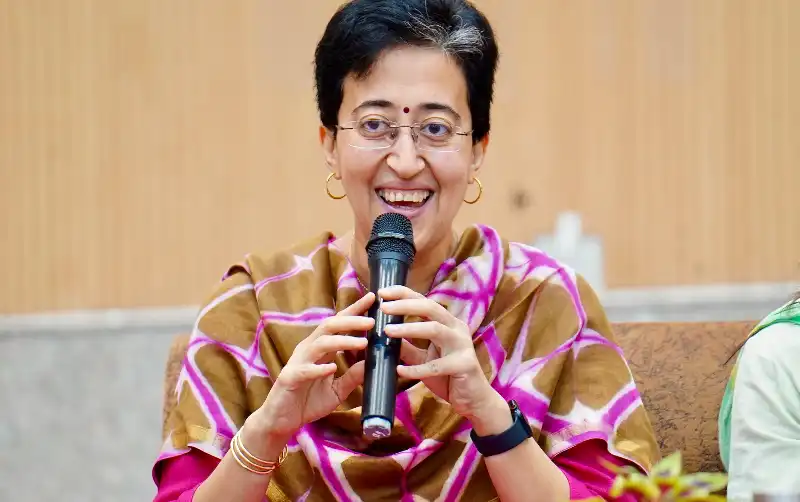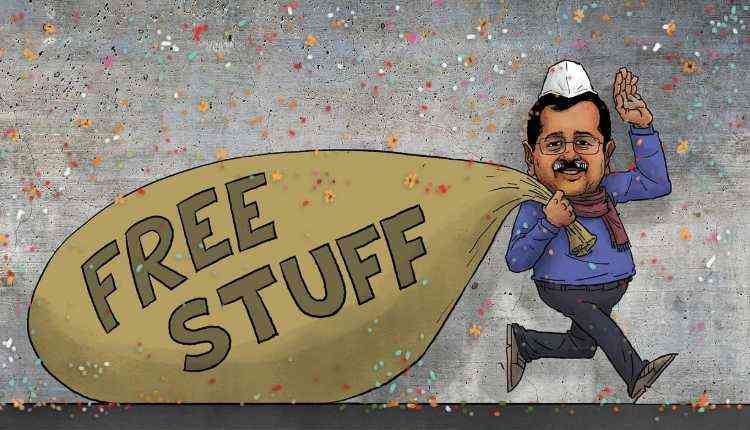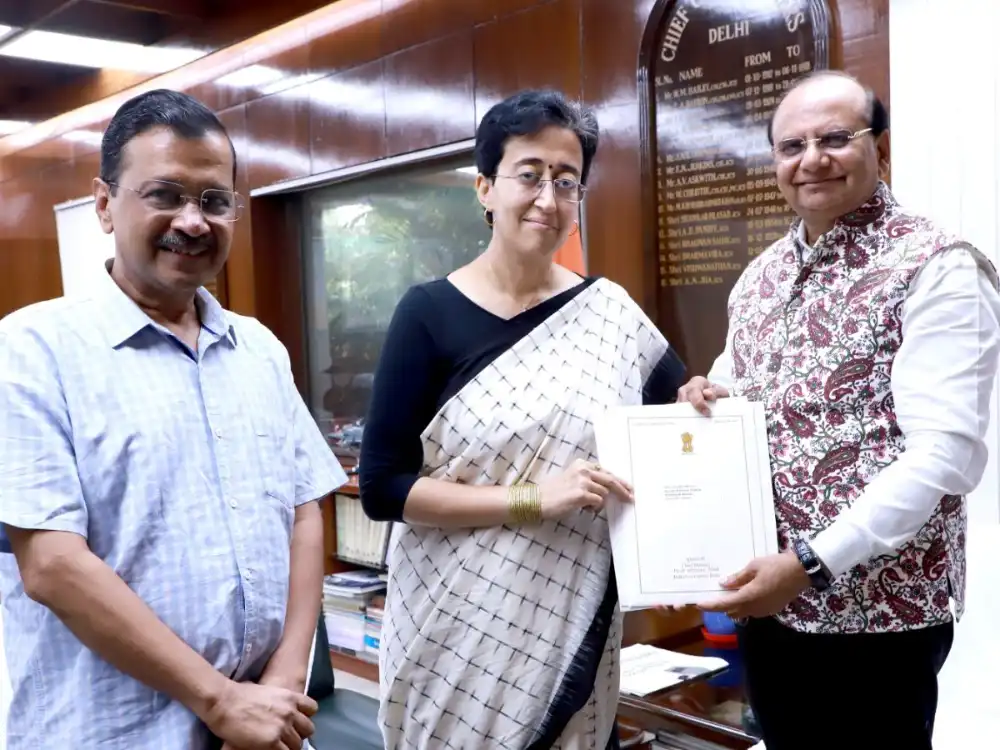Atishi Marlena has been appointed as the Chief Minister of Delhi, until the next NCT of Delhi elections, scheduled for on or before February 2025. The appointment comes in the wake of Aam Aadmi Party (AAP) convener Arvind Kejriwal’s bail conditions, which prevent him from signing documents or making decisions as Chief Minister.
Saurabh Bharadwaj praised the decision, stating, “Jaise Ramayan mein Bharat ne Shri Ram ji ka kharau rakh kar Janta ki seva kiya tha, waise hi Atishi Arvind Kejriwal ka kharau rakh kar janta ki seva karengi” (Just as Bharat in the Ramayana served the people by supporting Shri Ram, Atishi will serve the people by supporting Arvind Kejriwal).
However, opponents have criticized this comparison, arguing that it is inappropriate. They note that Kejriwal, along with other major political parties such as Congress, BJP, and TMC, had opposed the construction of a Ram temple in Ayodhya, making the analogy to Shri Ram and Bharat flawed.
Delhi BJP leaders have also voiced their concerns, describing Marlena as a “puppet” Chief Minister. They compare her situation to that of former Prime Minister Dr. Manmohan Singh, who was seen as a silent puppet under Congress chairperson Sonia Gandhi. The BJP claims that while Singh’s puppet status was unspoken, Marlena’s role as a puppet is openly acknowledged.
Before her appointment as Chief Minister, Marlena held several significant portfolios, including:
- Ministry of Education
- Ministry of Women and Child Welfare
- Ministry of Culture
- Ministry of Tourism
- Ministry of Public Works Department
Her appointment occurs during a turbulent period for AAP, with numerous senior leaders either departing the party or facing investigations related to scandals such as the education scam, liquor scam, financial irregularities, and ongoing inquiries by the Enforcement Directorate (ED) and the Central Bureau of Investigation (CBI).
AAP is part of the I.N.D.I.A alliance led by Congress, which includes various NDA opposition parties such as the Trinamool Congress (TMC) in West Bengal and AAP in Delhi. With Haryana elections approaching, AAP and Congress have opted to contest against each other rather than form a coalition, as Congress maintains that the I.N.D.I.A alliance is intended solely for the Lok Sabha elections.
Why Arvind Kejriwal’s Choice of Atishi Marlena as Chief Minister Raises Concerns

Image by [@AtishiAAP] / CC BY 4.0 /
1. Questionable Leadership Experience
Despite her previous roles in the Ministry of Education, Ministry of Women and Child Welfare, Ministry of Culture, Ministry of Tourism, and Ministry of Public Works Department, Marlena’s effectiveness in these positions has been questioned. Critics argue that her prior performance does not necessarily translate into the skills needed to lead Delhi effectively, particularly during a period of political instability.
2. Potential for Political Manipulation
Marlena’s appointment is seen by some as a move to maintain control behind the scenes. Critics suggest that her role as Chief Minister could simply be a façade for Kejriwal to continue exerting influence and making decisions without being in the spotlight. This perception undermines the credibility of her leadership and raises concerns about genuine political independence.
3. Avoiding Internal Party Controversies
The decision to appoint Marlena rather than a potentially divisive figure, such as Kejriwal’s wife, Sunita Kejriwal, may have been driven by a desire to avoid accusations of nepotism. However, this move might also indicate a lack of confidence in the party’s ability to handle internal conflicts and make tough leadership choices. It raises questions about the party’s internal dynamics and its ability to address controversies head-on.
4. Navigating Political Challenges Without Innovation
Marlena’s appointment could be viewed as a strategic but uninspired choice aimed at managing political challenges without bringing fresh ideas or innovation. The decision may reflect a lack of bold leadership and a reliance on maintaining the status quo rather than addressing pressing issues with new approaches.
5. Strategic Manipulation Rather Than Genuine Leadership
Kejriwal’s choice of Marlena might be interpreted as a strategic maneuver rather than a genuine commitment to effective governance. By placing Marlena in the Chief Minister’s role, Kejriwal might be seen as prioritizing political strategy over the actual needs of Delhi’s administration, which could undermine the effectiveness of her leadership.
Arvind Kejriwal’s Haryana Election Strategy Faces Scrutiny Amid Freebie Failures

Arvind Kejriwal’s strategy for the upcoming Haryana elections is under intense scrutiny, with concerns mounting over the effectiveness of his party’s governance model, particularly given recent issues in Delhi and Punjab.
1. Freebie Politics Under Fire
Kejriwal’s reliance on freebie politics, a hallmark of AAP’s governance in Delhi and Punjab, has come under criticism. In Delhi, the extensive distribution of free services has been criticized for straining public finances without addressing long-term infrastructural and developmental needs. In Punjab, the AAP-led government is grappling with severe financial difficulties, with funds being diverted to support freebie schemes. This has led to a budget shortfall, impacting the state’s ability to provide essential services and control inflation. The focus on giveaways has exacerbated shortages of essential commodities and contributed to economic instability.
2. Campaign Challenges
The emphasis on freebie politics could undermine Kejriwal’s campaign effectiveness in Haryana. Voters may question the sustainability of such policies and express skepticism about AAP’s ability to manage state finances effectively. The party’s track record of struggling with economic management and failure to address core issues such as infrastructure, healthcare, and education could weaken its appeal.
3. Damage to AAP’s Image
AAP’s governance challenges in Delhi and Punjab could tarnish the party’s image in Haryana. Opposition parties are expected to highlight these failures, framing them as evidence of AAP’s inability to manage public resources effectively. This could diminish Arvind Kejriwal’s credibility and weaken voter confidence in his leadership.
4. Opposition Exploitation
Opposition parties are likely to capitalize on the perceived failures of AAP’s governance model, using them to challenge the party’s competence and effectiveness. The narrative of financial mismanagement and ineffective policy implementation may resonate with Haryana voters, potentially impacting Kejriwal’s campaign.
5. Strategic Implications
Kejriwal’s campaign strategy may face significant hurdles due to the ongoing issues with AAP’s freebie politics. The party’s inability to present a viable plan for financial management and sustainable governance could affect its performance in the Haryana elections.


